Trump Dozes Off in Court as Historic Criminal Trial Gets Underway: Judge Rules that Playboy Playmate Can Testify, Bars Use of ‘Access Hollywood’ Tape
The judge also declined to rule yet on whether Mr. Trump will be able to attend his youngest son’s high school graduation next month.
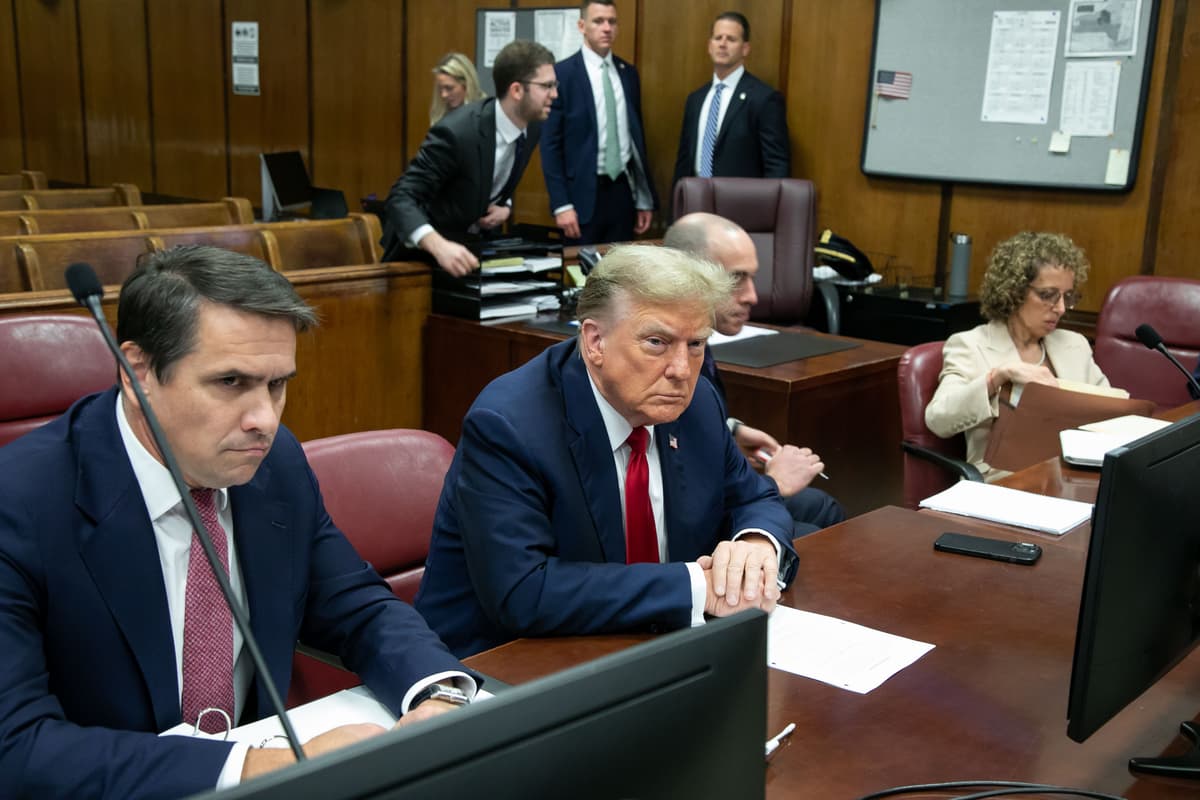
President Trump fell asleep on the first chaotic day of his historic hush-money trial, brought against him by the Manhattan district attorney, Alvin Bragg. He was also accused of violating his gag order. Only a small part of the day was spent on jury selection, with the judge dismissing dozens of jurors who said they could not be impartial.
“Nothing like this has ever happened before.” Mr. Trump, the first former president to ever face a criminal trial in the history of the United States, told court reporters in the hallway.
“This is political persecution, persecution like never before… It’s an assault on America. And that’s why I’m very proud to be here… It’s a country that’s run by an incompetent man who’s very much involved in this case. This is really an attack on a political opponent. That’s all it is. So I’m very honored to be here.”
Mr. Trump entered the courtroom at 9:32 am. He took a seat between two of his attorneys, Todd Blanche and Emil Bove, at the defense table, and waited for the judge.
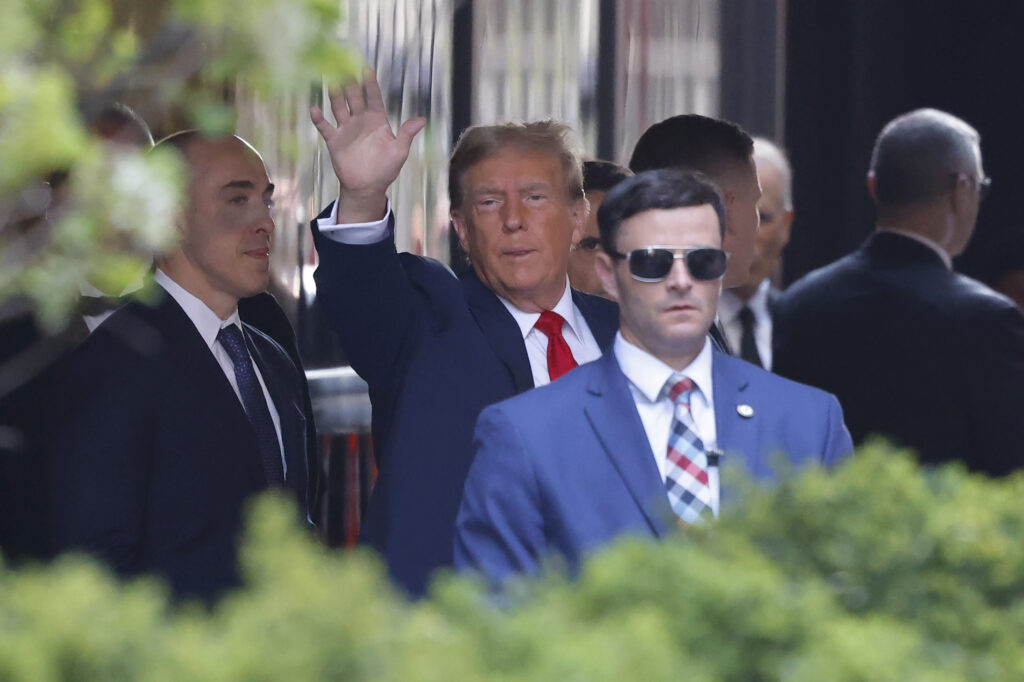
While the defense table was neatly organized and stocked with Fiji water bottles, the prosecution’s table was covered in paperwork and file boxes. Besides the three main attorneys, Susan Hoffinger, Matthew Colangelo, and Joshua Steinglass, there were approximately 17 more prosecutors seated across four rows in the courtroom behind Mr. Bragg.
“There are a couple of loose ends we need to go over before we start,” the New York Supreme Court judge, Juan Merchan, said after he sat down. The defense had filed a recusal motion on April 3, asking the judge to recuse himself because his adult daughter has organized campaigns for partisan Democrats strongly opposed to Mr. Trump, such as Vice President Harris and Congressman Adam Schiff of California.
Judge Merchan reminded the defense that it also had another request for recusal at the appeals court, “two motions of recusal pending in two courts.” He denied the motion, as he previously denied it in August of last year, explaining that the relatives of judges are free to have whatever political affiliation they like without in any way affecting the judge’s partiality.
Addressing public criticism that he should step aside if there were any reason to doubt his partiality, he added that, “A judge is as much obligated NOT to recuse himself when it is not called for as he is to recuse himself when it is.” He said the court would not address this matter further.
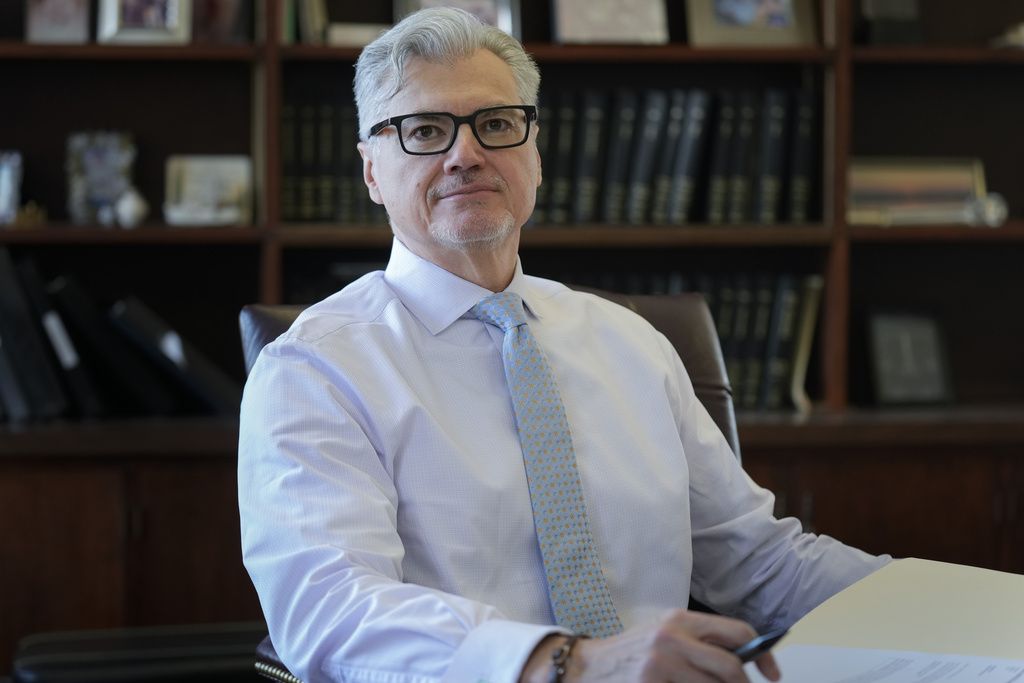
Outside of the courtroom around 200 jurors were waiting to be screened by the judge and the attorneys. But there were more “loose ends” that needed to be tied.
The prosecution asked the judge for permission to submit evidence about the publisher of the National Enquirer, David Pecker, and how he helped to hide from the public an alleged affair Mr. Trump is accused of having had with Karen McDougal, the Playboy Playmate of the Month for December 1997 and Playmate of the Year for 1998. Mr. Trump has denied all allegations of the affair. The prosecution also wants to call Ms. McDougal as a witness.
The matter of Ms. McDougal is separate from the alleged tryst at the heart of the trial involving the porn star Stormy Daniels, whose legal name is Stephanie Clifford. Ms. McDougal claims that the Enquirer paid her $150,000 to keep quiet about an alleged affair with Mr. Trump, in the guise of an agreement to write fitness columns which were never published. The practice of buying the silence of a source is known in the tabloid world as “catch and kill.”
Assistant District Attorney Joshua Steinglass told the court that he wanted to prove how the National Enquirer and Mr. Trump had made a deal to “control the flow of information,” to bury any bad publicity about Mr. Trump and instead publish “harmful information about Mr. Trump’s opponents” during the 2016 presidential election.
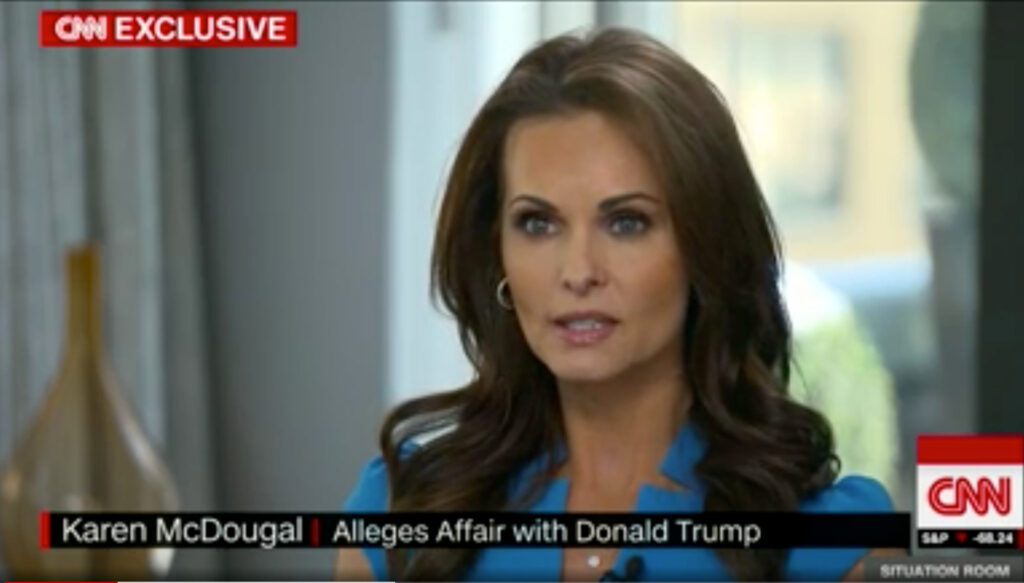
Mr. Steinglass cited as examples instances where Senator Cruz was accused of improprieties and Dr. Ben Carson was accused of medical malpractice.
Defense attorney Todd Blanche objected fiercely. “This will do nothing but confuse the jury about the crime charged,” he told the judge. There’s nothing illegal about a newspaper publisher and a politician meeting, he said, and discussing what headlines they should run. It happens all over this country all the time. Mr. Blanche called the evidence a “sideshow.”
Judge Merchan ruled that prosecution would be allowed to introduce the evidence, and both Ms. McDougal and Mr. Pecker would be allowed to testify.
But he granted the defense the request that prosecutors could not play the notorious “Access Hollywood” tape, in which Mr. Trump makes disparaging comments about women, during the trial. The prosecution was also barred from playing a tape from a deposition in the case brought by writer E. Jean. Carroll.
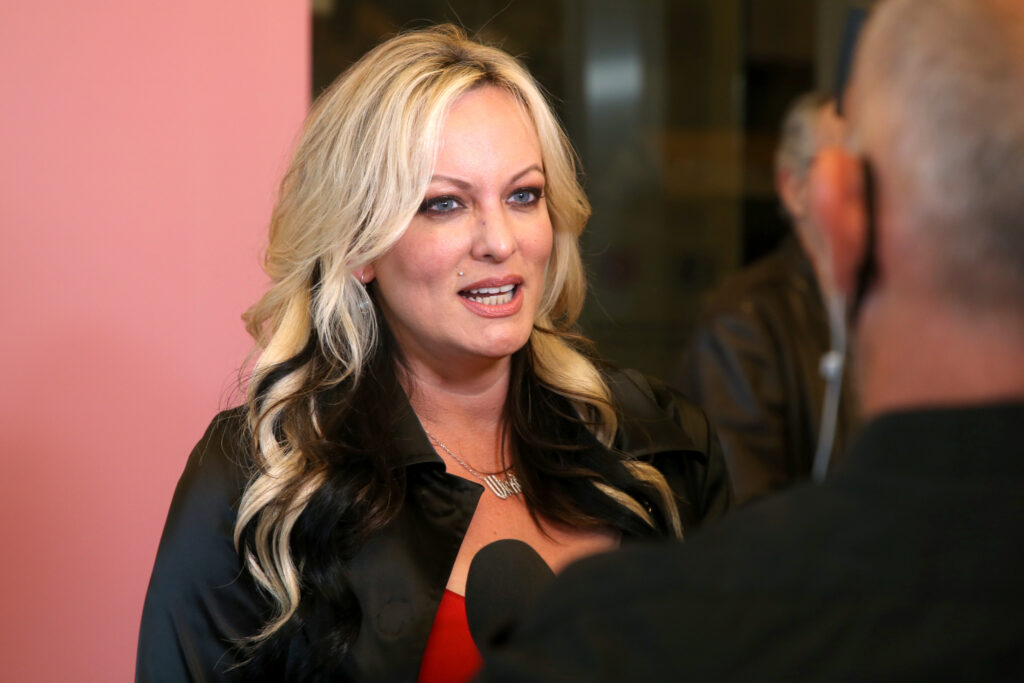
Ms. Carroll claims Mr. Trumped raped her in a dressing room on the lingerie floor of Bergdorf Goodman, the luxury Manhattan department store, some time in the 1990s (Mr. Trump says he’s never met Ms. Carroll, whom he calls “a wack job.”). In the instances of “Access Hollywood” and Ms. Carroll, the judge said, the evidence did not “advance the ball.”
“It’s not a little point,” Judge Merchan said. “My ruling that we were not to play the tape was, and remains, that the tape itself is so prejudicial — to see Mr. Trump depicted, the words coming out of his mouth, the facial expressions … the tape itself should not come in.”
Furthermore, he agreed that it was unnecessary to mention that Mr. Trump’s wife, Melania, had been pregnant with Barron Trump during the time when Mr. Trump is accused of having the affair with Ms. McDougal (which he denies).
Just when things seemed to go well for Mr. Trump, though, the prosecution pointed to three recent postings on his social media network, Truth Social, by the former president, which they said violate his gag order. They asked the judge to fine Mr. Trump $1,000 for each tweet as his public commentary amounted to a “thinly veiled effort to intimidate” two of the state’s star witnesses, his former lawyer and current nemesis, Michael Cohen, and Ms. Clifford.
In recent days, Mr. Trump has reposted a New York Post article (twice) that referred to Cohen as a “serial perjurer” and an article in The Hill describe Ms. Clifford’s claims about her liaison with Mr. Trump as “extortion.” The gag order prohibits Mr. Trump from criticizing witness in the case. It’s unclear if quoting other sources counts as violating the gag.
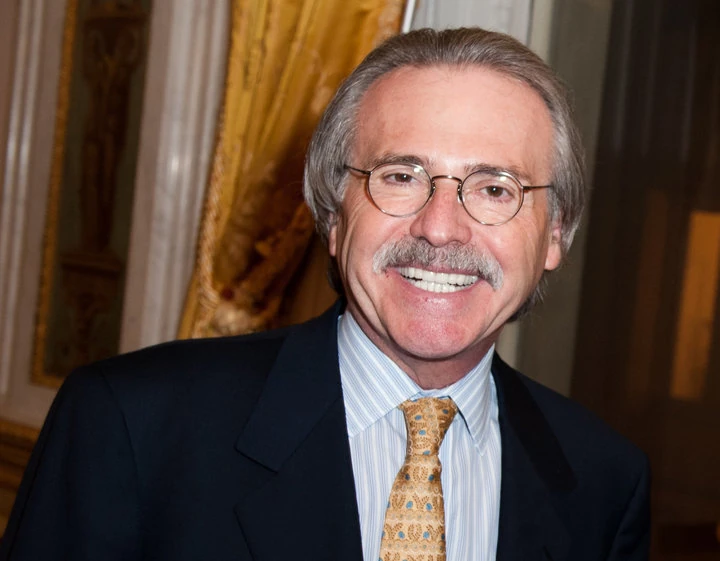
Mr. Blanche said the three posts do not violate the gag order, and asked the judge to respond in writing. Judge Merchan scheduled a hearing on the matter for April 23rd, and told the defense to submit their response by April 19.
Finally, in the late afternoon, the Judge turned his attention to the jury, and as he began to read the explanatory instructions. As the instructions dragged on, Mr. Trump could be seen dozing off at the defense table.
His attorneys had asked the judge earlier, if Mr. Trump could attend his Barron’s high school graduation on May 17. The Judge said he could not rule yet and needed to see if everything would go as planned.
After court, Mr. Trump told reporters that “as you know, my son is graduating from high school and it looks like the judge will not let me go to the graduation of my son, who has worked very, very hard. He was looking forward, for years, to that graduation with his mother and father there, and it looks like the judge isn’t going to allow me to escape this scam.”
Later in the evening, Mr. Trump wrote on Truth Social that the “highly biased” judge will also not allow him to attend next week’s Supreme Court hearing during which the Nine will hear his arguments about presidential immunity.
“This shows such great disdain and disrespect for our Nation’s Highest Court, especially for a topic so important as Presidential Immunity, Mr. Trump wrote.
As of Monday afternoon dozens of jurors had been dismissed because they said they felt they could not rule impartially. The next round begins on Tuesday morning. Jury selection is scheduled to last two weeks but could drag on longer.

